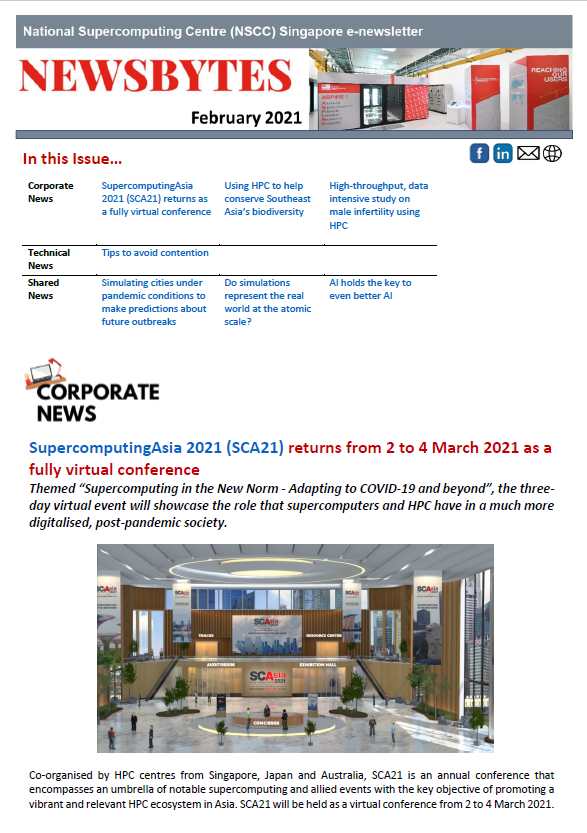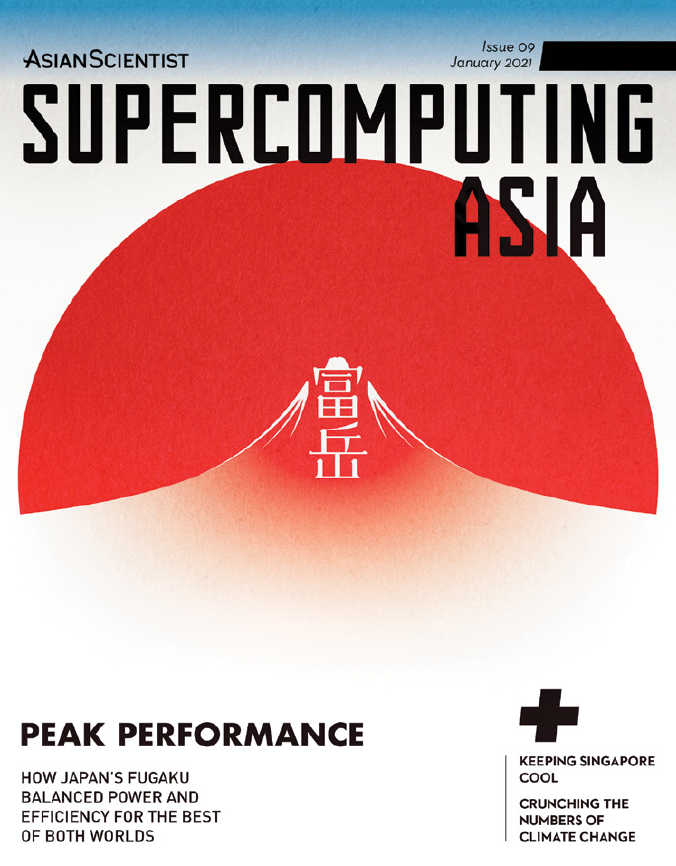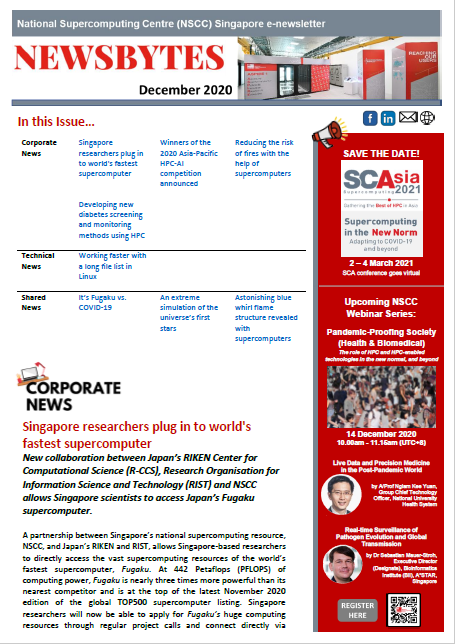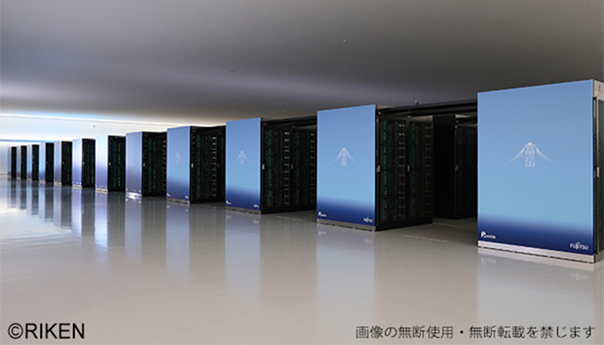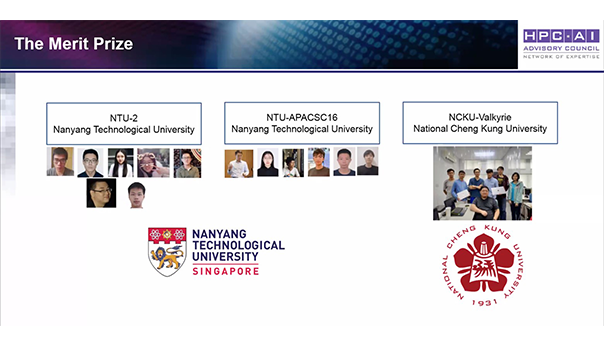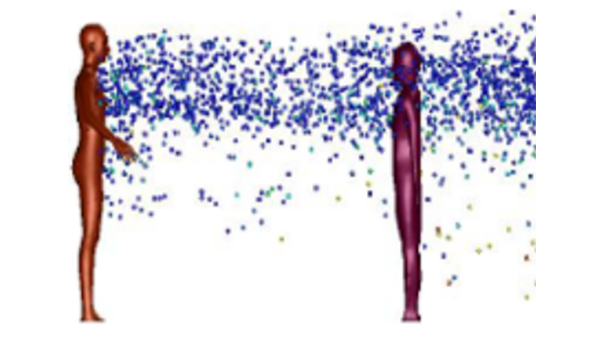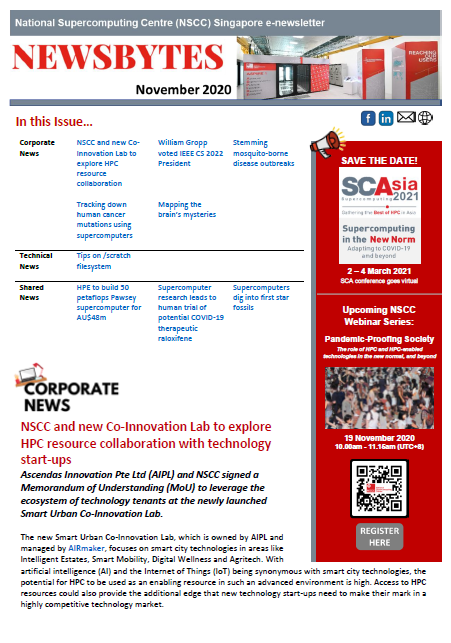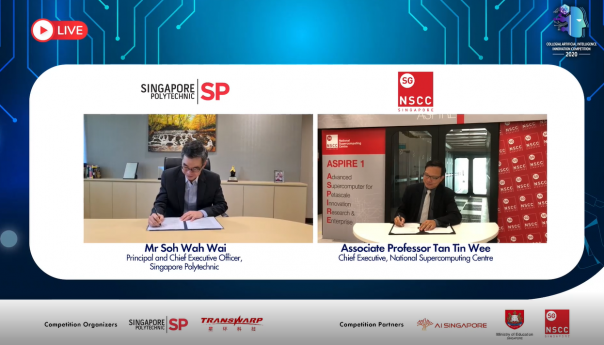A new collaboration between Japan’s RIKEN Center for Computational Science (R-CCS), Research Organization for Information Science and Technology (RIST) and NSCC, will allow Singapore scientists to directly tap on the HPC resources of Japan’s Fugaku supercomputer to do ground breaking research, enhance educational activities and develop talent in high performance computing (HPC). Find out more in the Press Release.
To ensure Singapore thrives in a future affected by climate change, it should establish itself as a research and development (R&D) hub for alternative energy sources. This could be done through building up the talent pool and investing in research infrastructure such as supercomputers. Alternative energy researchers can leverage the use of supercomputers to identify scalable solutions. To achieve this, deeper collaboration between alternative energy scientists, and the National Supercomputing Centre (NSCC) is desired. The bridge between the energy and computing could be established by institutionalising partnerships between corporations, universities, and NSCC. These were among the new key recommendations in a revised position paper on climate change by Young PAP, the youth wing of the People’s Action Party (PAP). Read more about the paper in The Straits Times
The HPC-AI Advisory Council in collaboration with the National Supercomputing Centre (NSCC) Singapore today announced the university team winners of the 2020 APAC high performance computing (HPC) and artificial intelligence (AI) competition. The ‘TinpoC’ team from the National Cheng Kung University (NCKU), Taiwan returned to the winner’s circle with another first place victory, together with second placed National Tsing Hua University (NTHU), Taiwan and China’s Southern University of Science and Technology (SUSTech) in third. Special merit awards were also presented to teams from Singapore’s Nanyang Technological University (NTU) and team ‘Valkyrie’ from National Cheng Kung University (NCKU), Taiwan. Find out more in the Press Release
A*STAR researchers in Singapore have developed a simulation which more accurately models the spread of droplets when a person with Covid-19 coughs in Singapore’s tropical environment. Working closely with the National Supercomputing Centre, they fed a combination of physics and mathematical equations, based on prior studies on the coronavirus, into a supercomputer to produce their simulation.
Singapore Polytechnic (SP) and Transwarp, with the support of the Ministry of Education, AI Singapore (AISG) and National Supercomputing Centre (NSCC), launched the first-of-its-kind local AI competition – the inaugural Singapore edition of the virtual Collegial Artificial Intelligence Innovation Competition (CAIIC) 2020. The competition enables youths from the junior colleges, Institute of Technical Education (ITE), polytechnics, universities and the public in Singapore to identify and develop innovative AI solutions. Singapore Polytechnic also announced a new partnership with NSCC to enable Singapore Polytechnic’s staff and students to develop AI innovations for local industries. Read more about the SP-NSCC MoU and the competition in the Media Release


